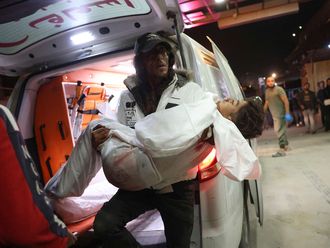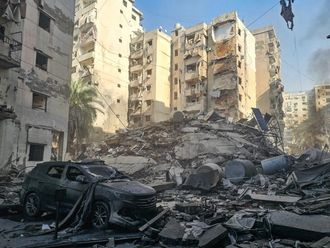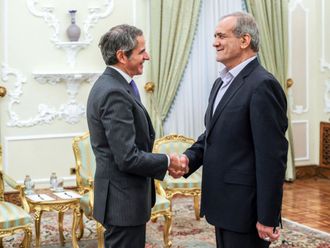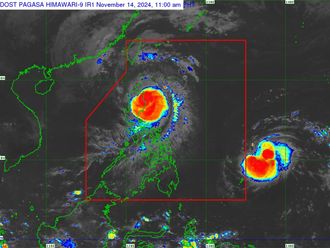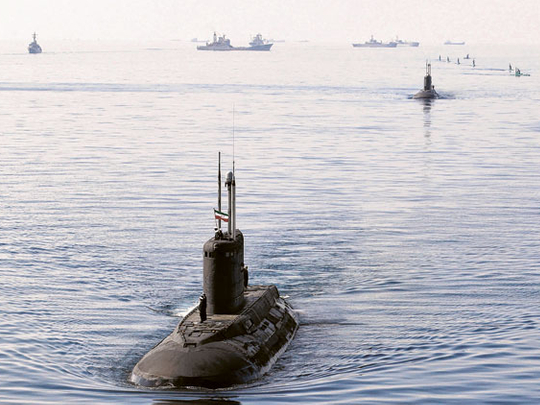
Paris: France insisted yesterday that Iran is developing nuclear bombs and urged Europe to follow the US lead by slapping an embargo on its oil exports and freezing its central bank assets by next month.
The call came as Iran's military warned one of the US navy's biggest aircraft carriers to keep away from the Gulf, in an escalating showdown over Tehran's nuclear drive that could pitch into armed confrontation.
French Foreign Minister Alain Juppe said that despite Tehran's insistence that its nuclear programme was exclusively for peaceful purposes, he was convinced "Iran is pursuing the development of its nuclear arms."
"I have no doubt about it…The last report by the International Atomic Energy Agency is quite explicit on this point," he told French network i-Tele.
"This is why France, without closing the path of negotiation and dialogue with Iran, wants stricter sanctions," he added.
Juppe said French President Nicolas Sarkozy has proposed freezing the assets of Iran's central bank and an embargo on exports of Iranian oil, a move being considered by the European Union.
"The American Congress has backed this idea and President [Barack] Obama has just signed it into law and we hope that the Europeans, by January 30, will take equivalent measures to show our determination," he said.
Tough sanctions
Obama on Saturday signed into law tough new sanctions targeting Iran's central bank and financial sector, in a move that could intensify the brewing Gulf showdown. The measures are in addition to four sets of United Nations sanctions imposed over Iran's nuclear activities, and the European Union is expected to announce further sanctions of its own at the end of January.
But reports say the 27-nation bloc has not reached consensus on Iran, with Germany — according to France's Le Monde newspaper — reluctant to directly target the Iranian central bank.
Greece, which gets about a third of its oil from Iran, has reservations about hitting Tehran's oil sector. A Greek diplomatic source said that an embargo would complicate supplies in these times of "economic crisis".
In London, British Prime Minister David Cameron's spokesman said: "This issue about a ban on oil and gas imports is something that we will be looking at and it will be discussed… at a meeting at the end of January."
In 2010, EU customers accounted for 18 per cent of Iran's oil exports, with most of the rest going to Asia.
Tehran, which insists its nuclear programme is exclusively for energy production and medical isotopes, last Sunday said its scientists had made the country's first nuclear fuel rod from indigenous uranium.
Long-stalled negotiations
Iran and the EU each said yesterday they were waiting on the other to take steps on resuming long-stalled negotiations over Tehran's nuclear programme.
Iranian foreign ministry spokesman Ramin Mehmanparast said "we are waiting for a date and venue of the next meeting to be declared" by EU foreign policy chief Catherine Ashton, who sent a letter in October proposing renewed talks.
But a spokesman for Ashton immediately shot back, saying in Brussels that Iran "must first respond to the letter and then we'll take it from there."
The negotiations were being held with the five permanent members of the UN Security Council — Britain, China, France, Russia and the United States, plus non-permanent member Germany.
Tensions have risen in recent days after Iran test-fired a series of missiles near the key Gulf oil supply route of the Strait of Hormuz.
Iran's military yesterday warned the American aircraft carrier USS John C. Stennis to keep away from the Gulf, in a defiant message that came just after Iran completed 10 days of naval manoeuvres at the entrance to the Gulf.


